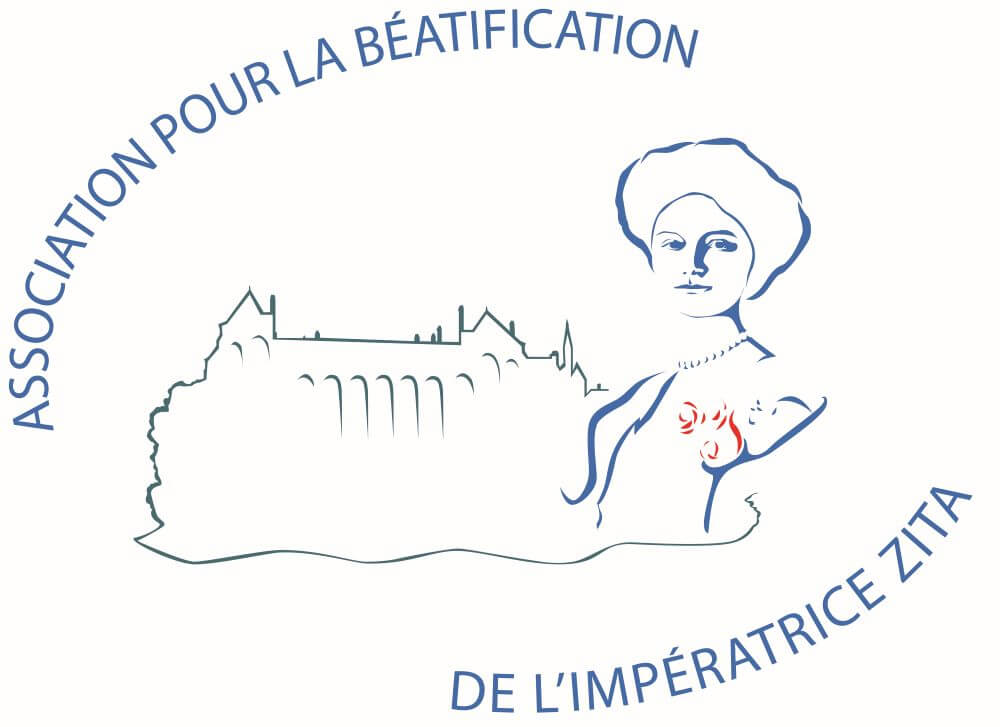Beatification is the declaration, by papal decree, that a person of Christian faith has practiced natural and Christian virtues in an exemplary, even heroic way. Moreover, the recognition of a miracle obtained through his intercession presupposes that the person is in heaven.
The cause of beatification of Empress Zita was opened in the diocese of Le Mans by Bishop Le Saux in 2009, after approval by the Congregation for the Cause of Saints regarding the development of the fama sanctitatis in the countries where she lived. From that day, Empress Zita of Austria became a Servant of God.
Why the diocese of Le Mans?
The ties linking the Servant of God with France come not only from her family’s origins, but also from the ties with the two monasteries of Solesmes (in the diocese of Le Mans). At the Moniales, she had known her grandmother, Mother Adelaide of Braganza, queen of Portugal, who, after the death of her husband, became a Benedictine in Solesmes; three of her sisters also followed this example.
In the midst of her many trials, the monastery of Sainte-Cécile de Solesmes was, for the empress Zita, a spiritual anchor she needed. As an Oblate of the Abbey of Saint-Pierre in 1926, she spent several months there, almost every year, and was able to reside within the enclosure of the Abbey of Sainte-Cécile, thanks to an indult by Pius XII
The nuns have always emphasized the discretion and great simplicity with which Her Majesty lived in enclosure, endeavouring to not disturb in any way the conventual life and to respect the rule of silence.
She faithfully attended choir prayer offices, devoted long moments to prayer and reading, and helped the nuns in their daily tasks. Her stays in Solesmes were always a time of rest, a spiritual retreat and a moment of joy with her sisters. Unable to become a nun herself, following the opposition of her children, she directed several young vocations, especially Basque ones, towards the monastery of Sainte-Cécile.
All this explains in part why the cause of his beatification was opened in the diocese of Le Mans.”
Dom Dupont, Abbot emeritus of Saint-Pierre de Solesmes.
All Christians are called to holiness.
The dogmatic constitution Lumen gentium solemnly affirms in 1964 the universal call to holiness:
“Yes, what God wants is your sanctification”. (§ 39)
“As for Christian spouses and parents, they must, following their own path, help each other in fidelity of love with the help of grace, throughout their lives, instilling in children that they have received from God, with love, Christian truths and the virtues of the Gospel (§ 41).
This is the commitment that Charles and Zita made on their wedding day:
“Now we will help each other to go to heaven”
“Now we will help each other to go to heaven”
The dignity of the lay faithful is revealed to us in its fullness if we examine the first and fundamental vocation which the Father offers in Jesus Christ through the Spirit to each one of them: the vocation to holiness, that is, to the perfection of charity. The saint is the most striking witness to the dignity conferred on the disciple of Christ”.
Pope John Paul II
Christi fideles laici (n°16)
A beatification trial begins when a bundle of facts, testimonies and writings show that this person is considered a saint: this is what is called fama sanctitatis (the fame of holiness)
In the case of Zita, it is her life as a mother, wife and sovereign that is presented to the judgment of the Church, a unique life according to God’s plan as every human life is unique.
Emperor Charles was beatified on 3 October 2004 by Saint John Paul II: “as a statesman and as a Christian, he sought the will of God in everything, recognized it and followed it” (cf. homily at the Mass for the Beatification), especially because of his commitment to peace during the First World War: «Emperor Charles conceived his office as a holy service to his peoples». Without presuming the sovereign judgment of the Church, the Christian life of the couple formed by Charles and Zita of Austria is also exemplary.
The Association for the Beatification of Empress Zita is working so that, God willing, the Servant of God is proclaimed Blessed and Holy.
The Association for the Beatification of Empress Zita is an actor in the cause: it appoints the postulator and promotes this cause in beatification to meet the request of many people who have been affected by the life of Empress Zita. It is a spiritual process to make known the life of someone who has had important roles in the world and lived in a specific historical context.
The Postulator is Abbot Leonhardt of the diocese of Strasbourg.
The Tribunal was installed at the opening of the diocesan trial, on 10 December 2009, by Bishop Le Saux at the bishopric of Le Mans. It is presided by the current bishop of Le Mans, Monseigneur Vuillemin. The delegated judge is Abbé Bonnet, parish priest of Bougival (78380). The Tribunal is responsible for conducting interviews with persons identified by the postulator, because of their proximity to the empress. This phase is over.
The Historical Commission is chaired by Fra Emmanuel Rousseau, Grand Commander of the Sovereign Order of Malta. He is responsible for authenticating documents, letters and articles concerning the Servant of God Zita. Eventually translate the texts (letters, archives…) and classify them in order to identify the virtues of the Servant of God Zita.
The Theological Commission is responsible for verifying whether the writings of the empress are in conformity with the doctrine and teachings of the Church. We do not know the members and they do not know each other.
Once these two commissions have completed their work, all the documents will be compiled into a Positio which will be sent to Rome for the Roman phase.
Throughout the work, the association plays an essential role: to make known the life and spirituality of the Servant of God Zita to develop the fama sanctitatis, organizing events throughout the year: masses, conferences, Forum (15 October 2022), Zita Day (9 October 2023) articles, interviews…
For the Servant of God Zita, several traits can be noted:
Her sense du service
In her role as Empress and Queen. From a human standpoint, she responded in an exemplary way to the words of the coronation ritual addressed to her in Budapest (30 December 1916): Receive the crown of sovereignty, so that you may know that you are the king’s wife and must always take care of the people of God. The higher you are placed, the more humble you must be and remain in Jesus Christ.”
Attention to others
In her official duties (the Cardinal-Archbishop of Vienna, Monsignor Piffl, called her “the guardian angel of all who suffer”) as well as in her ordinary life.
Surrender to divine Providence and courage
which were manifested in particular during the agony of Blessed Charles, her husband, and each time she was forced into exile.
Courage
Widowed with eight children. She took their upbringing, especially their Christian upbringing, to heart. She wanted to make her children unshakable Christians.
Her sense of service
In her role as Empress and Queen. From a human standpoint, she responded in an exemplary way to the words of the coronation ritual addressed to her in Budapest (30 December 1916): Receive the crown of sovereignty, so that you may know that you are the king’s wife and must always take care of the people of God. The higher you are placed, the more humble you must be and remain in Jesus Christ.”
Attention to others
In her official duties (the Cardinal-Archbishop of Vienna, Monsignor Piffl, called her “the guardian angel of all who suffer”) as well as in her ordinary life.
Surrender to divine Providence and courage
which were manifested in particular during the agony of Blessed Charles, her husband, and each time she was forced into exile.
Courage
Widowed with eight children. She took their upbringing, especially their Christian upbringing, to heart. She wanted to make her children unshakable Christians.
Love for the Church
Frequent reception of the sacraments, especially the Eucharist and the sacrament of penance and respect for the word of the Pope.
Obédience
to the Pope, to the Church and even to the abbot of Solesmes when he made himself the interpreter of his children’s wishes that she should not become a nun.
Piety and Humility
Through the recitation of parts of the divine office, the rosary and choosing a simple life.
Union with Christ
as an Oblate of the Abbey of Saint Pierre de Solesmes and as a consecrated person herself together with her whole family to the Sacred Heart of Jesus and the Immaculate Heart of Mary at the time of her agony.
Love for the Church
Frequent reception of the sacraments, especially the Eucharist and the sacrament of penance and respect for the word of the Pope.
Obédience
to the Pope, to the Church and even to the abbot of Solesmes when he made himself the interpreter of his children’s wishes that she should not become a nun.
Piety and humility
Through the recitation of parts of the divine office, the rosary and choosing a simple life.
Union with Christ
as an Oblate of the Abbey of Saint Pierre de Solesmes and as a consecrated person herself together with her whole family to the Sacred Heart of Jesus and the Immaculate Heart of Mary at the time of her agony.
All these aspects of her life, attested by very concrete testimonies, should enable the Church to make a declaration, God willing, on the heroism of the virtues of the Servant of God.

